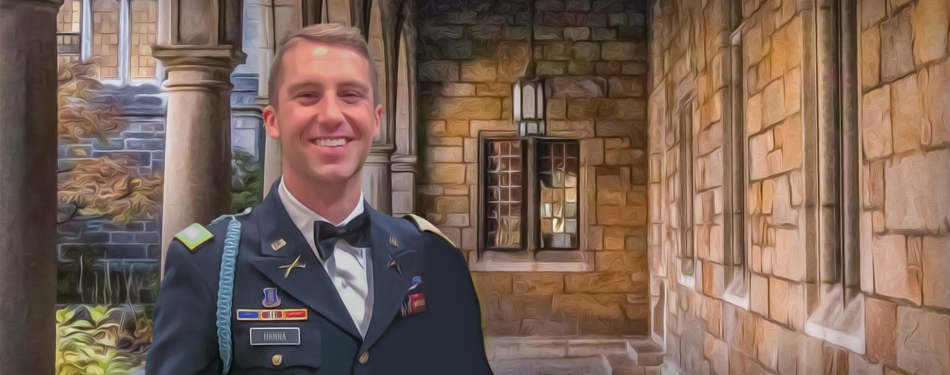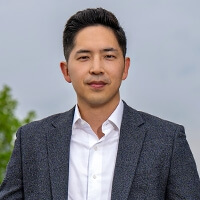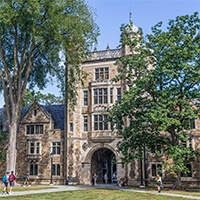One year after his discharge from the US Army, Will Hanna was a 2L in the Law School who found himself in the position to help a fellow veteran facing eviction from her Ann Arbor home. While new to the law and with little time to prepare, Hanna—along with Maiya Moncino, ’22, his partner in the Veterans Legal Clinic—wrote a brief and appeared in court to argue for the veteran and her family to stay in their home.
In the end, they were successful.
“I signed up for the clinic because I thought it would be rewarding to continue to work with veterans and stay connected to that community,” said Hanna, who served for four years as an infantry officer in the 101st Airborne Division and deployed to Afghanistan in 2017. “On a day-to-day basis, I don’t really think about my clients’ veteran status; I think about the legal challenges that they have asked me to help them solve. But at the same time, it is nice to have that connection and for my clients to know that I am also a veteran.”
On the brink of homelessness

Founded in 2015, Michigan Law’s Veterans Legal Clinic represents veterans in all types of civil litigation, including family law cases, housing cases, personal injury lawsuits, other tort claims, and consumer cases. Matthew Andres, ’02, a clinical assistant professor of law, is the clinic’s director; Carrie Floyd serves as a clinical teaching fellow.
Hanna said it was the mission of advocating for veterans that attracted him to the clinic.
The client in this case, a US Army veteran, and her family received an unexpected eviction notice in April 2021 from the new management of their mobile home park despite living in their home for eight years, always paying rent on time, and otherwise putting down roots.
With just one month to find a new home, they filed a declaration seeking protection under the Centers for Disease Control’s COVID eviction moratorium. They also retained the clinic to help with the pending termination of tenancy action.
At issue was whether a state law that protects mobile home owners from such an eviction also applied to mobile home renters.
“In order to evict them, you would have to give some sort of just cause that they were bad tenants,” said Hanna. “So our idea was that the relevant state laws applied to this case and because the management hadn’t given any good reason to evict them, the court should dismiss the case.”
The team filed a motion for summary disposition, and Hanna argued the case in Washtenaw County’s 14th District Court. However, during the argument, it became clear that Judge J. Cedric Simpson did not agree that the statute applied to mobile home renters.
A positive outcome
“Unfortunately, Judge Simpson didn’t agree with us,” said Floyd, who was the supervising attorney on the case. “But because Will and Maiya had done a really good job setting up the legal issue, we were able to signal that we would appeal the decision if the court didn’t rule in our favor.” Fearing an appeal, the mobile home park management negotiated a favorable settlement agreement.
In the end, the family was able to stay in their home—rent free—for almost four months while they saved money, applied for COVID Emergency Rental Assistance funding, and looked for another home that would allow their children to remain in Ann Arbor schools—continuity was important to the family. The settlement also prevented them from having an eviction on their record, which would have hurt their chances to find housing.
“I think Carrie accepted this case for the clinic because she knew that there was this big issue here that we could potentially appeal and try to get the law changed,” said Hanna. “She did not tell us that until we learned it ourselves, which was a great teaching moment for us.”
Floyd gives kudos to the students’ work. “They went toe to toe with the judge who didn’t agree with them and knew when they’d said enough to preserve the issue.”
Most importantly, they were able to serve their client.
“Veterans are very diverse and have many different experiences while they’re in the military and afterward,” said Hanna. “I don’t think this particular client and I had many similarities in our military experience. Yet we still had this basic connection. So I’m appreciative that the Law School puts resources behind this specific population.”







